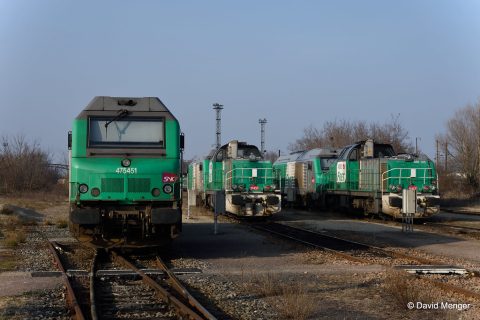‘DB InfraGO seeks to change rules with planned 35% TAC increase for 2026’

Track access charges (TAC) in Germany remain an issue for the rail freight industry. They will rise 16.2 per cent in 2025, with industry associations claiming now that 2026 might see even more expensive fees (+35 per cent) for using the rail infrastructure. On paper, there are laws to keep TAC in check, but the German infrastructure manager DB InfraGO is now ready to take legal action against such measures to have more freedom when setting up TAC, association Die Güterbahnen highlighted.
Currently, each freight train pays 3.21 euros per kilometre to use the German railways. In 2025 it will go up to 3.73. For 2026, DB InfraGO applied to further increase it to 5.04 euros/km, according to Die Güterbahnen. In theory, however, there is a limit on how much the German infrastructure manager can collect from TAC, which is determined by the Federal Network Agency (Bundesnetzagentur).
For 2026, the Agency set this limit at 7,46 billion euros. On the other hand, Die Güterbahnen said that the 35 per cent increase requested by DB InfraGO for that year would be 7,87 billion euros, 400 million over the permitted limit. “That’s not a mistake”, the association pointed out. According to them, DB InfraGO is planning a lawsuit against the Federal Network Agency and its decision. “The negotiation of track access charges for 2026 has only just begun and is not expected to end until March 2025”, Die Güterbahnen specified.
Subsidies need to increase
Together with four other associations – VCI, VDV, VPI and Allianz pro-Schiene – Die Güterbahnen is calling (once again) for an increase in subsidies covering TAC. In its draft budget, the German federal government allocated 275 million euros for this purpose for 2025. This should cover roughly 30 per cent of the total costs faced by companies. “Up until 2023, subsidies of up to 60 percent were common”, a joint statement mentioned. The five associations are now collectively asking to bring said budget back to 350 million euros.
You just read one of our premium articles free of charge
Want full access? Take advantage of our exclusive offer




